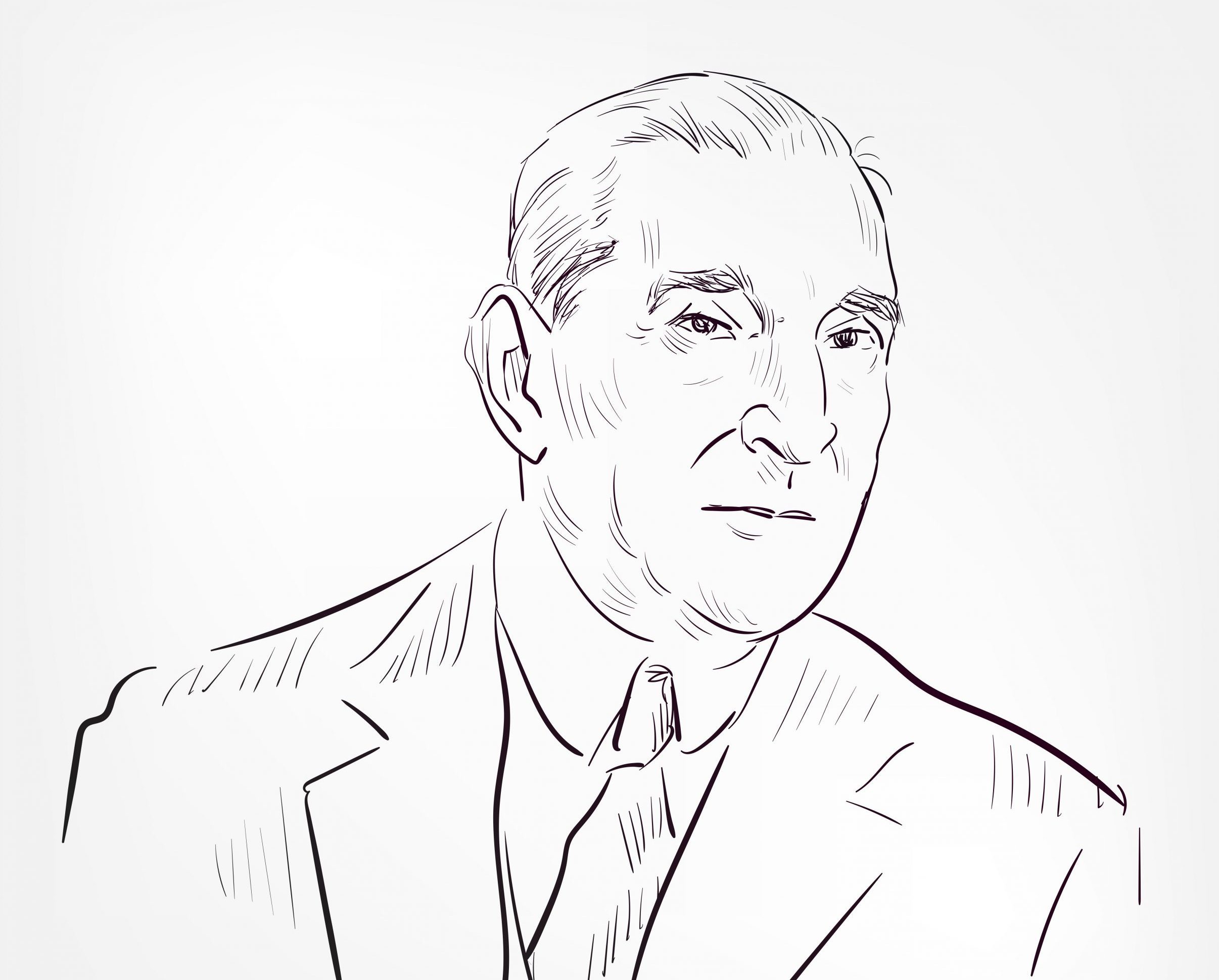Waiting for Salazar

Salazar: The Dictator Who Refused to Die, by Tom Gallagher, (Hurst: 2020), 360 pages.
Nobody wants to talk about António de Oliveira Salazar. The left resent him because he doesn’t fit their profile of a right-wing dictator. He despised fascism, which he dismissed as “pagan Caesarism.” Likewise, he said Hitler’s racism was “essentially pagan, incompatible with the character of our Christian civilization.”
Salazar rarely used his secret police to suppress political dissent. When he did, it was limited to the militant communists who tried to blow him up in 1937 as he made his way to church. After the bomb went off, shattering the windows of his car, he dusted himself off and said to his entourage, “Everything is over now. Let’s go in for Mass.”
Dr. Salazar opposed the Axis Powers’ expansionism, beginning with Italy’s invasion of Ethiopia in 1935. During World War II, he helped victims of the Third Reich escape Nazi-occupied Europe; Casablanca got that much right. He lent material support to the Allies during World War II, and he would have gladly joined the war on their side. Salazar remained neutral only for fear of driving his neighbor, Francisco Franco, into Hitler’s arms.
The right, meanwhile, doesn’t like to talk about him for fear of being called fascists ourselves. (What nonsense—as if our progressive friends need a reason.) We may hope that Tom Gallagher’s new biography of Salazar will break that silence.
Dr. Salazar, as he was always known, was an economist by training. In 1926, a military junta brought an end to the anarchic, anticlerical First Portuguese Republic; the generals asked him to serve as their finance minister. Within his first year, he restored financial stability for the first time in a century, becoming a national hero.
Soon, by popular acclaim, the military appointed him prime minister. Over the next few years, Salazar dismissed several of his cabinet ministers and took their portfolios for himself. Thus did Salazar establish himself as dictator, almost without anyone noticing.
Salazar ruled as a Catholic, and his regime was naturally conservative on social issues. He constantly insisted upon “the intrinsic value of religious truth to the individual and society.” His stated goals were to prevent “the perversion of public opinion” and to “safeguard the moral integrity of citizens.” He was an integralist, or something very much like it.
Yet he gave few political privileges to the institutional church. He fit the old feudal idea of a Christian king, an officer of the church in his own right. He supported the church’s efforts to evangelize the people and serve the poor, but insisted the bishops leave the business of statecraft to him. In fact, he was so disgusted by the “reforms” of the Second Vatican Council that he banned Pope Paul VI from Portugal.
In fiscal matters, Salazar was openly inspired by the social encyclicals of Popes Leo XIII and Pius IX. As an economist, he was wary of the fetish for rapid economic growth shared by fascists and communists. His priority was to wean Portugal from its dependence on trade with the United Kingdom while slowly growing the country’s industrial base.
Yet he was not a nationalist. It was never Salazar’s goal “to make Portugal great again,” but simply to ensure the country’s imperfect economy worked for the ordinary Portuguese. He espoused a kind of patriotic humility, urging his countrymen to reject delusions of grandeur offered by fascists and communists. He asked them simply to work, quietly and steadily, for the good of the country, as he himself did.
The cornerstone of Salazarism was depoliticization. As the French journalist Raymond Aron observed, “The government of Salazar tries to ‘depoliticize’ men, that of Hitler or Mussolini to ‘politicize’ or fanaticize them.” Salazar recognized that Portugal’s (and Europe’s) woes stemmed from an obsession with radical ideologies, and not only fascism or communism. Fundamentally, he blamed the liberalism that had infected Europe during the French Revolution.
He despised mass politics and remained virtually absent from public life. “These good people who cheer me one day, moved by the excitement of the occasion, may rise in rebellion the next day for equally passing reason,” Salazar observed. He also scorned political parties, which he believed serve no purpose but to obstruct good government and divide countrymen against one another. “Politics killed administration,” he once lamented.
The remedy, in Salazar’s view, was to rally the nation around its Christian heritage, keep peace on the Iberian Peninsula, and improve the lot of ordinary Portuguese.
And it worked. When he left after three decades, Portugal was a respected first-world power. Literacy rates had risen from 30 percent to nearly 100 percent. The economy was (modestly) booming. His admirers included such disparate figures as T.S. Eliot, Charles de Gaulle, Konrad Adenauer, and Dean Acheson, the latter of whom called Salazar “the nearest approach in our time to Plato’s philosopher-king.” Little wonder that, in 2007, a national poll named Salazar as history’s greatest Portuguese.
Looking around our own country, it’s increasingly difficult to refute Patrick Deneen’s thesis that liberalism has already failed. All the hallmarks are there: overdependence on foreign markets; a stagnant and servile economy; an increasingly polarized left and right; widespread political violence; a loss of faith in our democratic institutions.
 Yet Salazar’s example offers a different kind of post-liberal order to those offered by left- and right-wing ideologues. Salazarism, if there is such a thing, is a kind of paternalistic traditionalism. Either a weaker or a more “visionary” leader couldn’t have spared Portugal the excesses of totalitarianism. Salazar was, in his own way, a moderate.
Yet Salazar’s example offers a different kind of post-liberal order to those offered by left- and right-wing ideologues. Salazarism, if there is such a thing, is a kind of paternalistic traditionalism. Either a weaker or a more “visionary” leader couldn’t have spared Portugal the excesses of totalitarianism. Salazar was, in his own way, a moderate.
Summing up the spirit of Salazarism, Gallagher incisively quotes the Israeli conservative thinker Yoram Hazony: “Where a people is incapable of self-discipline, a mild government will only encourage licentiousness and division, hatred and violence, eventually forcing a choice between civil war and tyranny. This means that the best an undisciplined people can hope for is a benevolent autocrat.”
Events of the last year may prove Hazony right. If we Americans lack the self-discipline necessary for self-government, if liberalism is off the table, the only alternative to a tyrant like Lenin or Hitler may be a man like Salazar: a paternalistic traditionalist, a philosopher-king.
Michael Warren Davis is the author of the forthcoming book The Reactionary Mind (Regnery, 2021).